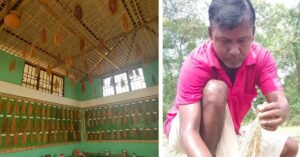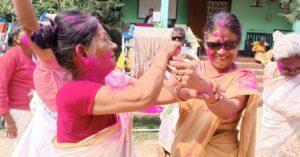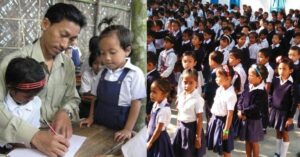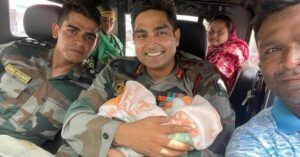Sexually Abused at 12, This Assam Hero Has Trained Over 500 Cops in Child Rights
Miguel Das Queah's Guwahati-based non-profit UTSAH (Universal Team for Social Action and Help) works for children’s rights, particularly those affected by sexual violence, in Assam.
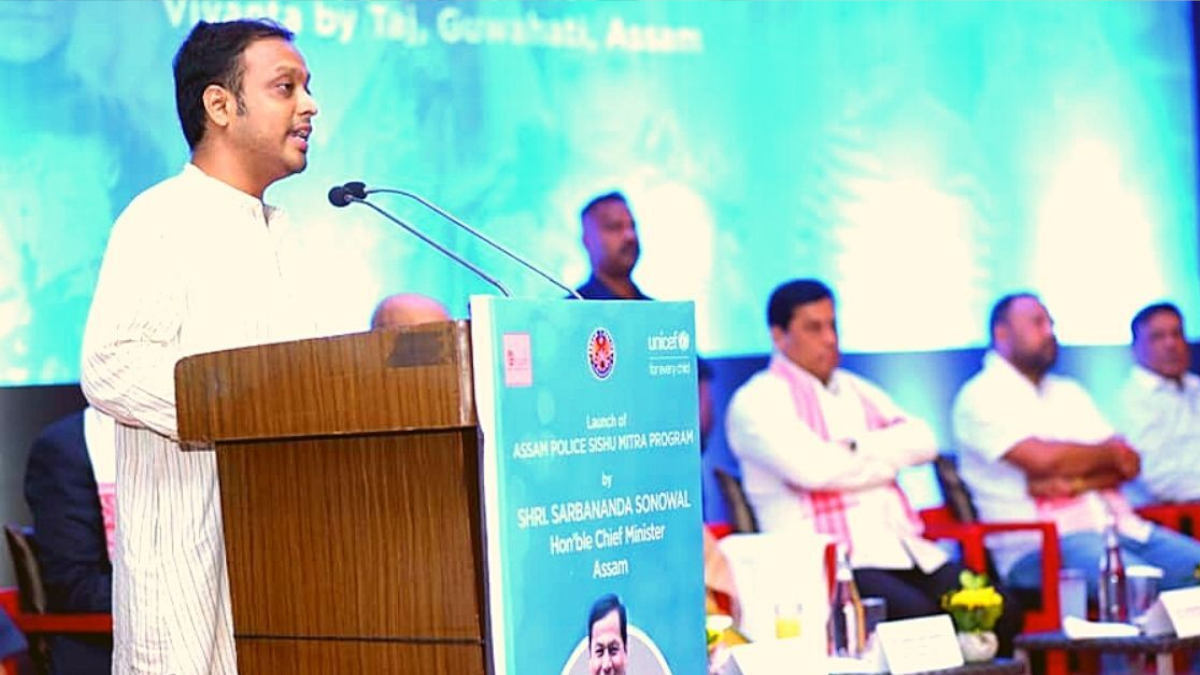
Meet 34-year-old child rights activist Miguel Das Queah, whose Guwahati-based non-profit UTSAH (Universal Team for Social Action and Help) works for children’s rights, particularly those affected by sexual violence, in Assam.
His organisation has provided end-to-end psychosocial and legal assistance to 300 child survivors and provided immersive child safety training to over 2 lakh children across schools and communities in Assam. Miguel has also trained and mentored over 500 police personnel in child protection practices and played an instrumental role in designing the Assam Police Sishu Mitra Programme, a child-friendly policing and police reform initiative.
“My first encounter with Miguel Da happened in 2014 while rescuing a child labourer in Birubari, Guwahati. Over the years, UTSAH has closely assisted Assam Police in Protection of Children from Sexual Offences (POCSO) Act and child labour-related cases, ensuring that child survivors receive the proper protection and care. In POCSO cases, particularly, they work with field-level officers from across Assam to prevent procedural lapses, ensure officers behave with the child in a friendly manner, follow all necessary protocols and more importantly that they maintain empathy with the child’s plight at all times,” says Sub-Inspector Kankan Mahanta of Birubari police station, speaking to The Better India.
For Miguel, however, four pivotal events shaped his life.
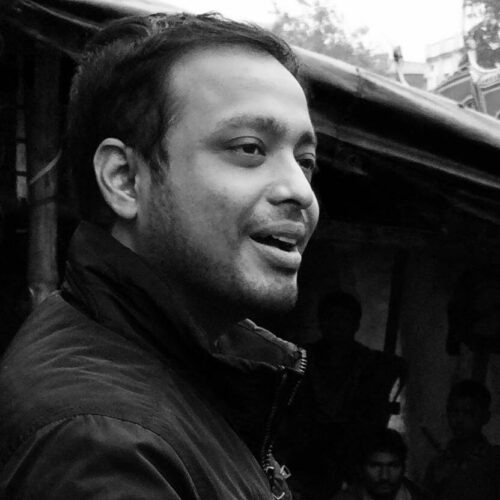
Pivotal Events
The first pivotal event came when Miguel was a 12-year-old child. He was sexually abused by a stranger while travelling. Neither his privilege nor living in a secure household could protect him from suffering abuse. The youngest of three boys in the family couldn’t talk to anyone about his abuse because of the shame and taboo surrounding the subject.
The second event was meeting former President of India, Dr APJ Abdul Kalam, at his 10 Rajaji Marg residence in 2010, as part of a series of meetings with young student leaders across the country. Miguel had served as Vice-President of the Students Union Society at St. Stephen’s College, Delhi University, a couple of years earlier and even earned a fellowship called the Study of the U.S. Institutes (SUSIs) for Student Leaders.
“In the meeting, I went on a long rant about everything that is wrong with the country and how things, particularly social services for the marginalised, should be of a higher standard. After listening to me rant for 20 minutes straight while fiddling his fingers, he said to me, ‘Miguel, you spoke about everything that had gone wrong. Tell me about things that can go right and tell me about the role you can play in making them right’,” recalls Miguel.
“Dr Kalam very specifically told me, ‘Don’t go and do 10 things if it does not have any meaningful outcome. You must self-reflect, think of a specific area where you can create change and then go ahead to make a difference’,” he adds.
Around the same time, he was volunteering with the All India Senior Citizens Confederation (AISCCON), a non-profit. During his internship, he was sent to an old age home in Guwahati, holding its centenary celebrations.
He met with the late Mamoni Raisom Goswami at the old age home, a celebrated Assamese litterateur and winner of the Sahitya Akademi Award.
“She had asked me about what I was doing living in New Delhi. I told her about how I want to form a collective of young people to address Delhi’s youth issues. In response, she said something very interesting. ‘You are an Assamese lad, who has studied in one of the country’s best institutions but wants to go and work in Delhi, which is not bad. But if you can’t clean your own courtyard, you can’t clean the world.’ That message stuck with me. Within two weeks of that conversation, I left Delhi and arrived in Guwahati,” he adds.
After coming down to Guwahati, Miguel spent the first few months meeting with different stakeholders working on a plethora of issues addressing the marginalised plight. He would soon go along with groups of concerned citizens, visiting different corners of the state from Kamrup district to Bodoland learning about the issues affecting men, women, the elderly and children from low-income communities.
While the women, men and the elderly spoke about their troubles, the children would often say they had no problems even though many of them were out of school, pushed into child labour, entered into child marriages, suffered malnourishment or had scars on their faces.
“After one such event in early 2011, I remember going back home and thinking that these children don’t have the agency to talk about issues concerning them. Three months after establishing UTSAH in March 2011, we began our first community-based education programme in Hafiz Nagar Number 2, an informal settlement in eastern Guwahati, working with 120 children. Working with government and other civil society members, we began getting children who had dropped out of school to work their way back into the education system. We spread awareness and tackled child marriage issues, child labour, human trafficking, teenage pregnancy and child sexual abuse,” recalls Miguel.
Two years later, however, came the fourth episode that changed his life. In late March 2013, during Holi, he received a call about something serious happening to a six-year-old girl at Hafiz Nagar No 2 settlement. Running to the police station, he met the parents, who had informed him that a 45-year-old man at the colony sexually assaulted her. The incident also triggered the trauma he suffered as a 12-year-old survivor of sexual abuse.
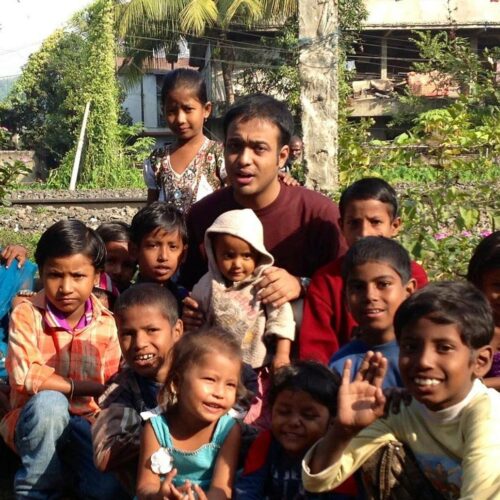
“Despite not quite knowing what to do in such cases, my instincts pushed me to reprimand the police for not filing the FIR properly and care for the girl child who was standing outside the police station in the rain,” he says.
Working closely with the parents and the police for one and a half years, Miguel helped secure a rape conviction against the perpetrator. During the case, he began researching in-depth about child sexual abuse and the recent Protection of Children from Sexual Offences (POCSO) Act, 2012 and working with the police to use this new law to address child sexual abuse cases in the city. As a result of his work in the Hafiz Nagar child sexual abuse case, many nearby communities began referring cases to him.
Battling Child Sexual Abuse
For the next few years, UTSAH continued working on hundreds of child sexual abuse cases with varied success. In Assam, where conversations on the issue weren’t widespread, UTSAH pioneered a change in the larger public discourse.
Matters turned for the better in 2017, when the United Nations Children’s Fund (UNICEF), recognised the work UTSAH was doing and joined forces. Soon, Miguel was inducted as the State government appointed Support Person for handling cases under the Protection of Children from Sexual Offences (POCSO) Act, 2012.
“What we do is provide psycho, social and legal support to children affected by sexual violence. Soon after I started working on different child sexual abuse cases, I realised that mere activism would not work. I had to build a team of lawyers, councillors, and social workers, who would collaboratively provide end to end psychosocial and legal support to an affected child and offer technical assistance at police stations,” he says.
His team’s objective is to ensure child survivors receive all their entitlements from the court, including payment of monetary compensation to the child for any physical/mental trauma caused to the child or for immediate rehabilitation.
“Most offenders are very powerful people, and the children come from low-income communities from tea gardens, slums, and remote hill areas. Fighting these cases is very challenging. Sometimes, our FIRs would go missing. There are times when the accused don’t show up during trial, which is a delay tactic by the defence because no ex parte judgements are issued in POCSO cases. But the dedication and professionalism of our team to ensure the child isn’t exposed to risks and vulnerabilities during the course of the trial, helps fight these uphill battles,” notes Miguel.
In the past six years, the organisation has helped secure several convictions, but obtaining judgements in these cases, particularly in district and sessions court, is a really time-consuming process. At present, they are working on about 400 cases on paper.
Meanwhile, psychosocial assistance entails regular counselling for the child survivor who has endured trauma, facilitating their return to school and engaging with communities to ensure they become a social support source. However, if support persons at UTSAH see that the social context is not fit for the child (e.g. the father is the abuser), they then work with the State social welfare system and get them into child care institutions.
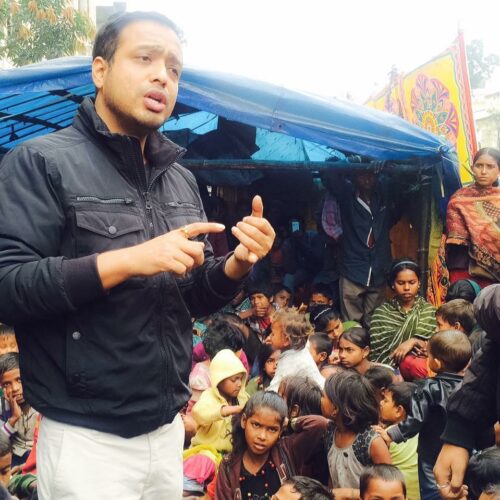
However, their most enduring contribution has been the formulation and rolling out of the Assam Police Shishu Mitra (APSM), one of India’s largest child-friendly policing programmes. Since police on the field are the first point of contact in the event of a crime, it became imperative that they learnt the nuances of handling such cases.
“I started with small training sessions and workshops with the Assam Police. Over time with support from current Director General of Police (DGP) Bhaskar Bhaskar Jyoti Mahanta and ADGP Harmeet Singh, we designed the APSM programme. It has several components of child-friendly policing including training, resource support and social media campaigns where the police directly engage with other children to address their anxieties,” says Miguel.
“See, as per law, child survivors do not have to visit the police station. Miguel Da taught us to ensure that no child has to enter the police station directly. Our job is to reach out to the children directly at their homes in our civil dress, make them feel comfortable by offering them some chocolate or snacks, speak to them in a kind and empathetic manner, and ensure they can freely speak to us about the crime. Reporting the crime is the most important part. But in the event a child survivor was to make their way to the police station suddenly, our job is to ensure they don’t fear their surroundings. We have a designated child-friendly room at the station,” notes SI Kankan Mahanta.
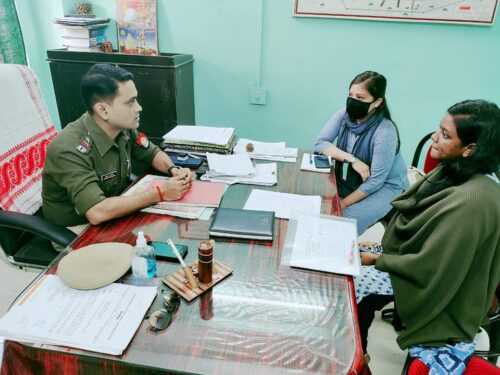
Launched on 23 August 2019, “the focus of this initiative is to ensure that whenever children visit police stations or interact with field-level officers, their experience is positive,” notes Inspector General of Police (CID) Surendra Kumar, an expert on child rights. “Meanwhile, the purpose of this programme is threefold—capacity building of police officers in child protection cases, awareness generation, and proactively reaching out to children at risk.”
Another field officer currently working on a case who does not wish to be named, said, “The training and assistance UTSAH provides is beneficial because our police stations are extremely busy places where we are dealing with various crimes and criminals. They play an important role in helping us maintain an easy relationship with the child survivor, ensuring we follow all the necessary protocols like when to produce them before the child welfare committee and where to house them during trials, etc.”
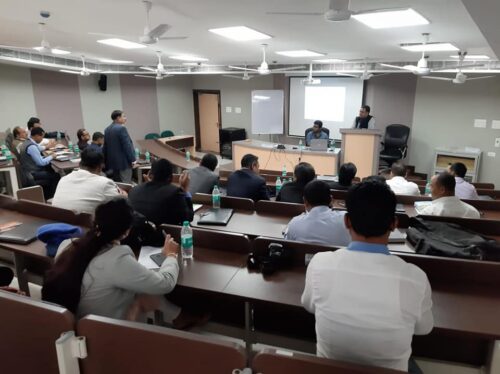
A key aspect of this programme is the Assam Police Sishu Mitra Resource Centre, which was inaugurated in Guwahati on 1 October 2020. This resource centre houses police officers and representatives from UTSAH. Whenever any case relating to crimes against children is reported, the investigating officer (IO) or the police station’s SHO has to inform the centre about the crime’s brief.
The resource centre offers all sorts of guidance and support to the IO. Its mandate is to ensure that the concerned IO meets all the important statutory timelines by sending regular reminders. For example, if a rape or sexual assault is committed on a child is penetrative in nature, under the POCSO Act, the investigation must be completed within two months from the registration of the case. Similarly, the medical examination of victims of sexual assault has to happen within 24 hours of receiving the complaint.
“Earlier, the police would commit a series of errors and lapses in POCSO-related cases, particularly when it came to the procedure. Ever since Miguel Da has come on board, whatever doubts we have about the procedure or any other concern, we are free to speak with UTSAH’s resource persons at any time. This has benefited us immensely given that POCSO-related cases are given special attention at our police stations,” says SI Mahanta.
Meanwhile, IGP Surendra Kumar notes that before the pandemic struck, UTSAH team members interacted with field-level officers from more than half of Assam’s districts, trained them in child protection practices and addressed their concerns as well. “There was great feedback from officers on the ground who were trained under the programme,” he notes.
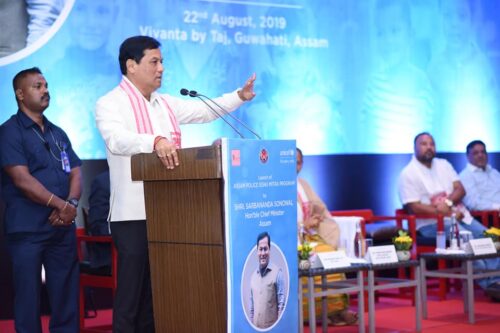
But Miguel does admit to not having enough persons on board. For example, he believes that a social worker should ideally handle about 30 cases at a time. But social workers under the umbrella of UTSAH, for example, are handling nearly 90 cases. Meanwhile, during the pandemic, the challenges have grown bigger because the number of reported cases has increased weekly, offering up at least two new cases.
“Our plan ahead is to expand our engagement with the system. We would love to develop an APSM-like programme for the judiciary, district child protection committees, and other administration arms to ensure the system responds to child sexual abuse cases in a coherent and well-coordinated manner. Our police, judiciary and social welfare system must be strengthened to address these issues better,” says Miguel. If you found our stories insightful, informative, or even just enjoyable, we invite you to consider making a voluntary payment to support the work we do at The Better India. Your contribution helps us continue producing quality content that educates, inspires, and drives positive change. Choose one of the payment options below for your contribution- By paying for the stories you value, you directly contribute to sustaining our efforts focused on making a difference in the world. Together, let’s ensure that impactful stories continue to be told and shared, enriching lives and communities alike. Thank you for your support. Here are some frequently asked questions you might find helpful to know why you are contributing?

(Edited by Vinayak Hegde)
Like this story? Or have something to share? Write to us: [email protected], or connect with us on Facebook and Twitter.
This story made me
-
97
-
121
-
89
-
167




